There are only two books of the Bible named after women: Esther and Ruth. Ruth is also one of the few women who are mentioned in the genealogy of Jesus found in the book of Matthew. And this was in a time when women weren’t ordinarily included in genealogies.
The book of Ruth is a beautiful piece of sacred literature, applauded by many for its literary excellence. And the story – it’s an important one. A simple Moabite widow becomes an essential character in the powerful story of salvation woven through the Bible.
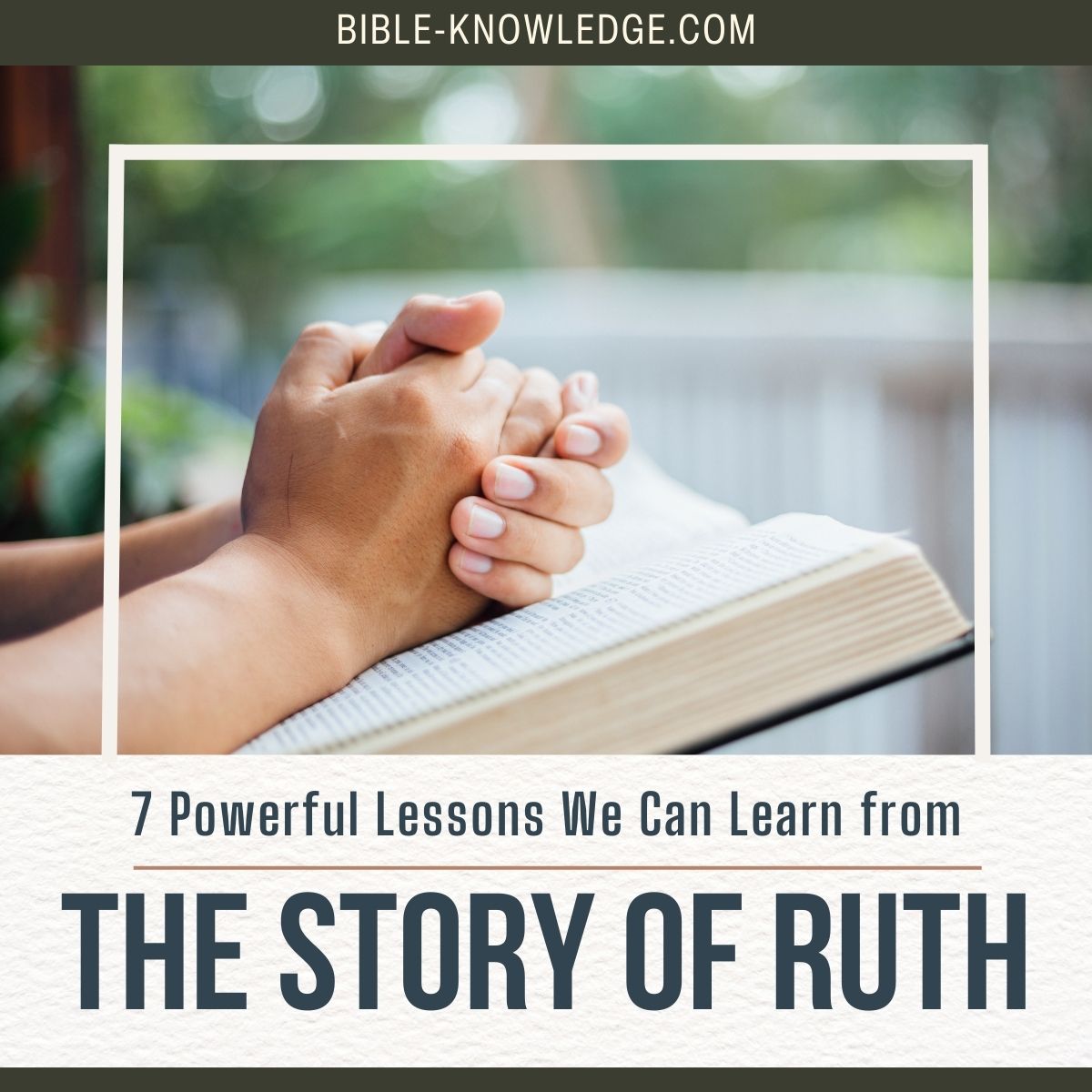
As a widow myself, I’m drawn to the story of Ruth again and again. A famine in Canaan forces Elimelech and Naomi, along with their sons, to migrate from Bethlehem to Moab. Their sons marry Moabite women, Orpah and Ruth. Elimelech passes away, and about 10 years later, both of Naomi’s sons die, as well. Naomi, Ruth, and Orpah are all widows.
The world is not kind to widows today, and being a widow was even more difficult back then. In fact, Naomi encourages both girls to go back to their parents and find husbands who can take care of them. Ruth refuses with a passionate speech to Naomi:
Entreat me not to leave thee, or to return from following after thee: for whither thou goest, I will go; and where thou lodgest, I will lodge: thy people shall be my people, and thy God my God; Where thou diest, will I die, and there will I be buried: the Lord do so to me, and more also, if ought but death part thee and me.” (Ruth 1: 16,17 KJV)
So, Ruth and Naomi both return to Bethlehem. They have nothing, so Ruth goes to work in the grain fields so they have enough food to eat. It’s there that she meets Boaz, who also turns out to be her “redeemer.” After Boaz secures his place as her redeemer, the two are married and are later blessed with a son named Obed – the grandfather of King David.
Ruth’s story is ordinary. Perhaps that’s what makes it so compelling. She doesn’t come from a famous family. She doesn’t have great riches or great position. Ruth is just a widow – one from an enemy nation, at that. Nothing is going in her favor, but she’s brave, and her faith never wavers. And yet the life of a foreign widow who has nothing becomes so important that it’s included in the Bible and her name recognized in the lineage of Jesus.
As you read through the book of Ruth, you won’t find any places where God’s voice thunders down to her as you might in other Bible stories. No earth-shattering miracles, like the Red Sea parting, happen in her life. But what you do see is an ordinary – and challenging – life shaped by faith and guided by the God she believes in, and today we can look back and see the mighty way her life was used.
While there are many things to learn from the story of Ruth, here are seven powerful lessons from this tiny book that stood out to me.
Lesson #1 – There is Hope Even in the Most Devastating Times of Our Life
The book of Ruth begins by looking at the life of Naomi. After moving to Moab with her husband and sons, she loses her husband and becomes a widow. Just 10 years later her sons die, too. It seems that Naomi’s entire life crumbles in those years. In fact, when she returns to Bethlehem, she tells everyone:
…Call me not Naomi, call me Mara: for the Almighty hath dealt very bitterly with me. I went out full, and the Lord hath brought me home again empty.” (Ruth 1:20,21a KJV)
It’s crushing to lose a spouse. It’s heart-wrenching to lose a child. And Ruth, she also lost her husband. She left behind her family to go with Naomi back to Bethlehem. When these two women arrive back in Naomi’s home town, they are destitute, devastated, and broken. Neither of them knew how they’d survive. But both of them had faith that somehow things would work out. They had hope for their future.
Naomi already felt that God had “dealt very bitterly” with her, yet she continued to hope. Ruth laid aside her pain, left her home and family, and turned her face to the future with hope as she journeyed to a new place with her mother-in-law. Both of these women showed faith and clung to the belief that better days were ahead.
When life brings devastation, it’s not easy to hope. It’s hard to have faith. But when things are the most difficult, that’s when we need faith and hope the most. In the moments where life feels like it’s crushing you, start with a little faith. Hebrews 11:1 reminds us that “Now faith is the substance of things hoped for, the evidence of things not seen.” And looking at the book of Ruth, we can see that even when we can’t see beyond our pain to his plan, we can have hope that our story isn’t over – better days are coming.
Lesson #2 – The Past is Not Our Final Destination When We Trust God
At the very beginning of the book of Ruth, she’s living in Moab, her home nation. Moab was a place that most Israelites didn’t like. It was an enemy nation, and Israelites tended to look down on the Moabites. On top of that, she was a widow, she was childless, and she lived with her mother-in-law.
That journey to Israel must have been frightening. She made a choice to stay with Naomi and help her, all the while knowing that she was going to a country that wouldn’t like her very much. Her country of origin already made her an outcast, and being a childless widow gave her plenty of reason to shrink back into a shell and simply live her life in obscurity.
But that’s not what she did. She declared that she was going with Naomi to Bethlehem, left her country and her family behind, and refused to let her past hold her back. She chose to serve the God of Naomi, and she believed there was still life left for her to live.
No matter your past, you still have a purpose. Your past is not your final destination when you make a choice in faith. While your confidence may be wavering, God’s promises are not.
Lesson #3 – Doing the Right Thing Often Takes Great Sacrifice
Doing the right thing isn’t always easy. In fact, it often takes great sacrifice. Naomi reminded Ruth that she was free to leave and go back to her family. She was free to go back to her gods and free to search for a new husband to take care of her. But even when her sister-in-law chose to go back, Ruth made a different decision.
Ruth chose to go with her mother-in-law, showing not only how dedicated she was to Naomi, but also her dedication to the God of Israel. In that instant, she decided, “…Thy people shall be my people, and thy God my God.”
It was a sacrifice for Ruth to refuse to return to her family. Her commitment to journey on with Naomi was a beautiful, selfless act, and a stunning example of the love of Christ – the same Christ who would be of her bloodline years later.
Lesson #4 – Sharing Openly About Our Relationship with God Brings Intimacy to Relationships
The story of Naomi and Ruth are woven together closely that their stories are nearly inseparable. In fact, we know more about the relationship between these two women than we know about them individually. Their relationship offers a beautiful model of a good relationship – a stunning look at a blending of lives.
The two women shared great sorrow, but they also shared great affection for one another. We also see the freedom in their relationship. Naomi loved Ruth, but she was willing to let her go back to her family. But it was Ruth’s love for Naomi that made her willing to leave her country to return to Israel. Even though Naomi knew that a new marriage for Ruth would change their relationship, she still played an important part in arranging the marriage of Boaz and Ruth.
It was their faith that was at the center of their relationship and intimate communication. Through Naomi, Ruth learned about the God of Israel and chose to put her trust in him. Naomi’s ability to be open and honest with Ruth about her relationship with God is inspiring.
We often feel like we need to keep our questions and thoughts about God to ourselves within a relationship. We don’t usually share our unedited feelings and thoughts about God with friends or family members. Sometimes we’re afraid that sharing our questions and doubts and disappointments will turn other people away from God, when actually, sharing about our relationship with God openly can bring more intimacy to our relationships and help draw other people to their own faith.
Naomi was open with Ruth about the joy, the fear, the pain, and the anguish that came with her faith in God. She admitted that she felt that God had dealt with her bitterly. And yet it was that sharing and intimacy that was the foundation of the deep relationship these two women shared.
Lesson #5 – We See a Preview of Christ’s Redeeming Power
Throughout the Bible, we see previews of Christ. In the book of Ruth, we see Boaz as a “type” of Christ – he’s the “redeemer” of Ruth. These previews of Christ are a bit of a “foreshadowing” that falls across Old Testament pages, fully coming to reality in the New Testament with the birth of Jesus.
Both Ruth and Naomi mention Boaz as a “kinsman.” In Hebrew, the word used is “goel,” which refers to a kinsman who has the “right to redeem” or a “redeemer.”
Throughout the Bible, we see that same Hebrew word used several times. In the book of Job, Job declares, “I know that my Redeemer [goel] lives.” While Boaz was a “kinsman redeemer,” when Jesus comes to earth as a man, he becomes our “kinsman redeemer” in the flesh, and Hebrews 2:11 it says that he is “not ashamed to call them brethren.”
Boaz redeemed Ruth, but years later Jesus would become the “redeemer” for mankind. When John the Baptist was born, Zacharias was speaking in the future about the work of Christ, announcing:
Blessed be the Lord God of Israel; for he hath visited and redeemed his people.” (Luke 1:68)
Lesson #6 – We Must Be People of Character Even When We Think No One is Watching
Character – it’s who you really are when no one else is watching. Ruth had no idea that millions of people would read her story. She lived a simple live in obscurity. Yet she showed incredible character. Even Boaz makes mention of her character:
…It hath fully been shewed me, all that thou hast done unto thy mother in law since the death of thine husband: and how thou hast left thy father and thy mother, and the land of thy nativity, and art come unto a people which thou knewest not heretofore…Blessed be thou of the Lord, my daughter; for thou hast shewed more kindness in the latter end than at the beginning, inasmuch as thou followedst not young men, whether poor or rich. And now, my daughter, fear not; I will do to thee all that thou requirest: for all the city of my people doth know that thou art a virtuous woman.” (Ruth 2:11, Ruth 3:10,11 KJV)
Ruth went above and beyond in the way she honored and respected her mother-in-law, and in doing so became known in the entire city as a “virtuous woman.” She worked hard to provide food for her and her mother-in-law. Everything that she did showed her character, and because of that character, she was honored by God. Like Ruth, we also need to work to be women and men of integrity.
Lesson #7 – God Uses Unlikely People for His Purpose
Ruth was a poor, hurting, outcast, widow. She grew up in an evil country – an enemy of Israel. She was childless. She moved to a foreign land where she knew no one but her mother-in-law. They struggled with poverty. She had to go gather behind the harvesters in the fields to get a bit of barley so they could survive. Anyone who looked at this foreign widow would have never guessed that God would choose her bloodline for the line of the promised redeemer – Jesus.
Through Ruth’s story, we learn that God uses the most unlikely people for his purpose. Just look at the five women mentioned in the genealogy of Jesus: Tamar, Rahab, Ruth, Bathsheba, and Mary. Tamar resorted to trickery to bear a son. Rahab was a prostitute whose faith saved her from the crashing walls of Jericho. Ruth was a Moabite and a widow. Bathsheba (referred to as Uriah’s wife in the genealogy of Jesus) only became David’s wife after David took her for himself and killed her husband. Mary was a young virgin who was already engaged to Joseph when she became pregnant with Jesus, and she showed great courage in her willingness to bear the scorn and shame that came with a pregnancy that occurred before marriage.
Ruth reminds us that no matter what lies in our past, and no matter how difficult our circumstances may be, a little bit of faith makes a huge difference. And even in our obscurity, and in the mess of what may be our lives, God finds a way to use the most unlikely people in ways that we could never imagine.
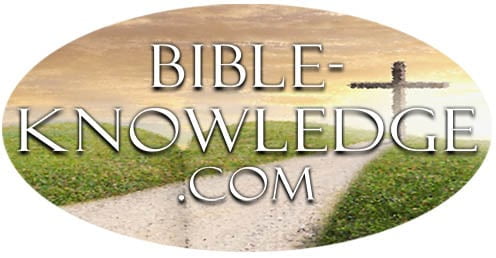
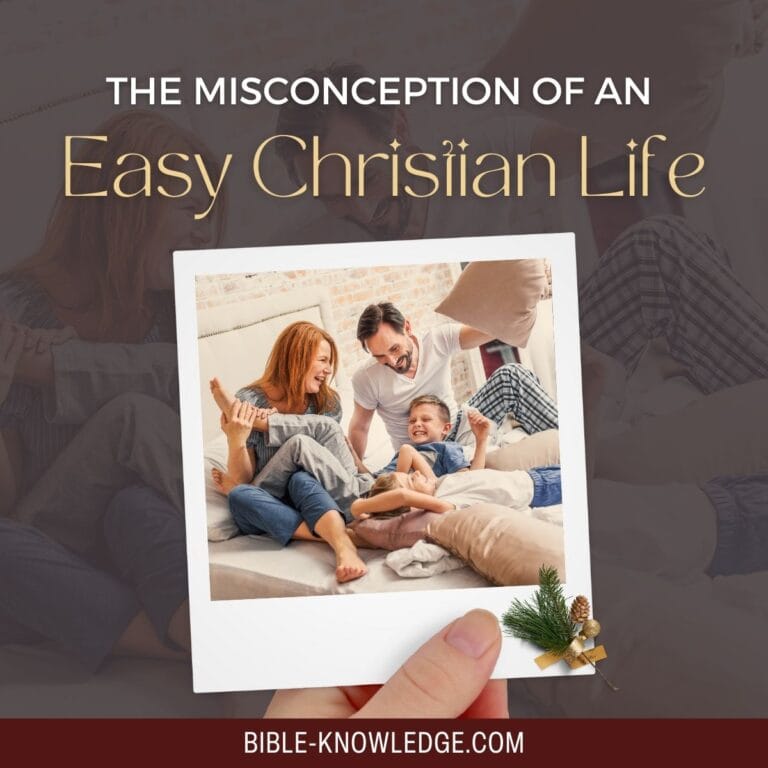
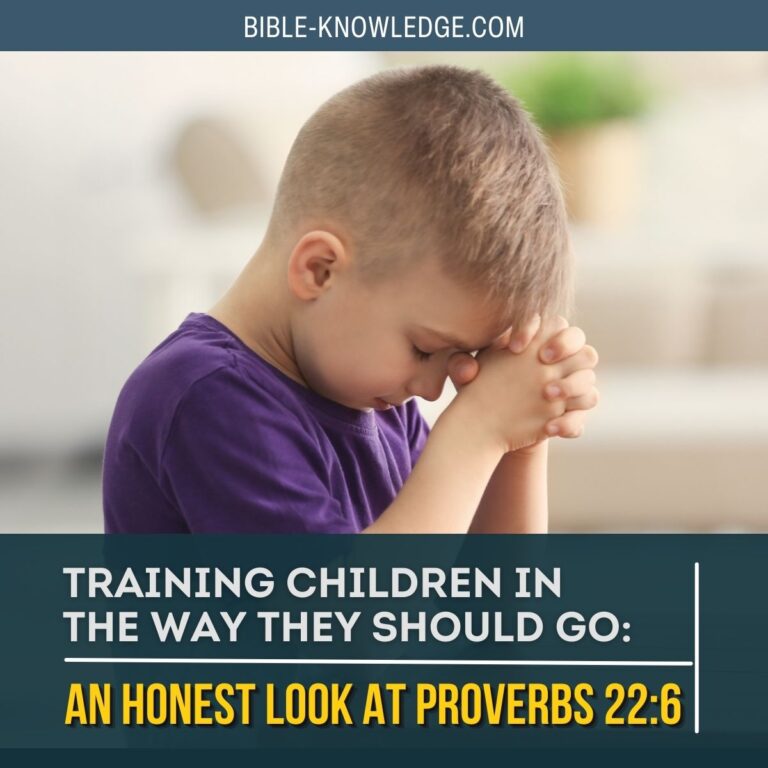
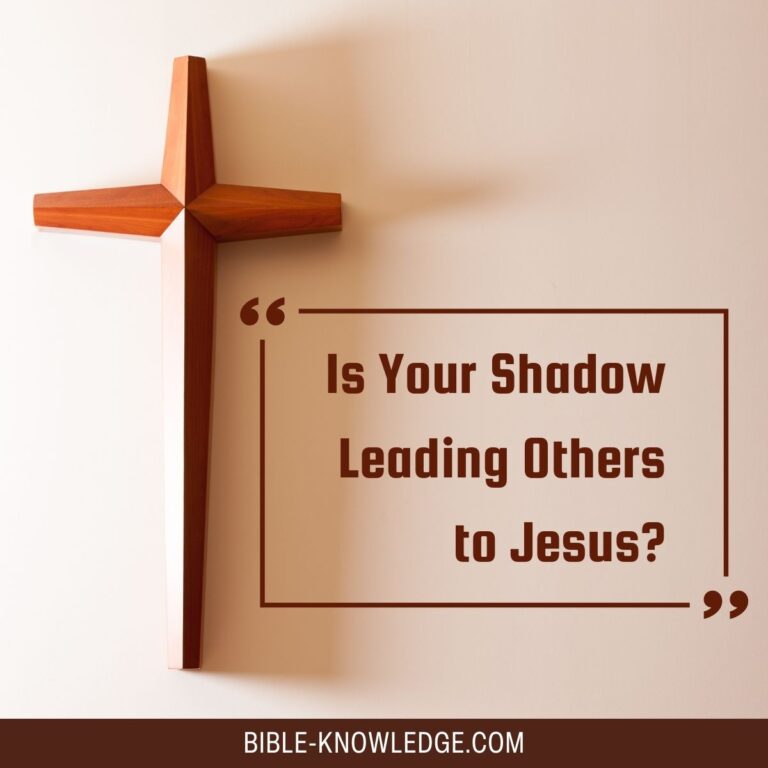
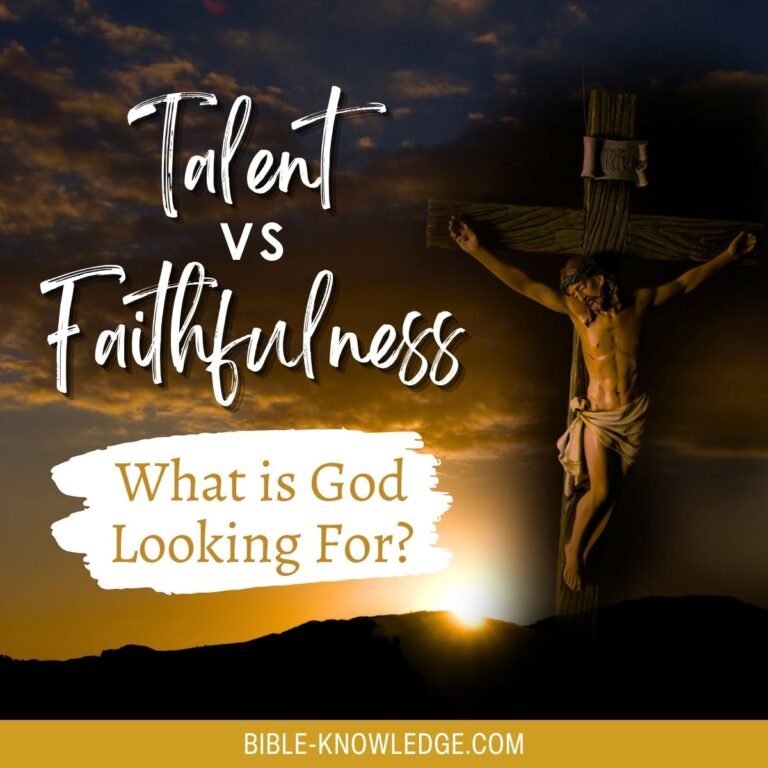
So, it is 5:30 or so and I’m sitting here just finishing up this remarkable encouraging chapter from the book/life of an ordinary woman with an extraordinary life.
I am SO glad I did not delete this one it has truly blessed, inspired and encouraged me.
Thank you
This is an awesome story of how God loves us!! He is relentless and loyal beyond comprehension He just is!!!!!!! This sorry should bind women all over the world!!!
Sitting here in Crossville, TN, I find myself inspired by the information that Ruth and
Boaz had a son Obed (facts I’d forgotten), who was David’s grandfather. Here in this
part of TN we have the Obed River (a name which many of us puzzled over). These lightly related facts help to knit together the details of Scripture. As time goes on, the eternal aspects of the Scripture come more into focus as helped by these connective moments. A blessing.
May each of you find blessing in this meditation
I got a revelation from the comment on Mary, who was willing to be judged even stoned to death by the village council, because of her acceptance of the pregnancy before her marrying Joseph
No one but Joseph knew that his betrothed was pregnant. The clue is that he wanted to put her away secretly. Although her pregnancy was legit, no-one could know that she fell pregnant while betrothed to Joseph, otherwise it would have discredited Jesus as the Messiah (Matthew 1:18-21).
Thanks for the message, perfect for the clarification on lineage of the lord jesus, I will go and read the bible one more time.
Ok.
Hi Colleagues,
Your article on the “7 Powerful Lessons We Can Learn from the Story of Ruth” was very interesting and educative. As full time church worker, it gave me more insight on the difficult life experiences that widows normally go through that is apparent in churches today. Please, I have no regret for being connected to you and also can’t wait to receiving more articles in your subsequent posts.
Regards,
Sahr Kassama Junior.
This is the first time I’m reading the story of Ruth and Naomi. I have been greatly blessed.
The Analyses of Naomi and Ruth in this episode is words of encouragement that there is no impossibility before God even when human being think all is lost. It is a word of encouragement that edifies faith that every tough situation is testimony in disguise if one can maintain his/her stand in God,may God blesses the writer and his/her experience to come out with this powerful inspiration.
God also rewarded her ( A MOABITE WOMAN) by making her to become the great grandmother of King David, ( Obed-Jesse- David). Jesus is from David’s lineage. God rewards our labor of Love!
Thanks for this teaching.
Amen… God loves people of every nation when they put their trust in him. This is my favorite book in the Bible. Ruth was a loyal and good daughter-in-law. Naomi was a good mother-in-law who loved Ruth… like a daughter. They both loved the same God of Israel !!!
Truly, the contents in this article are the inspiration of the Holy Ghost. As Paul would have it for Timothy in his second epistle to the latter 3:16,17: “All scripture is given by inspiration of God, and is profitable for doctrine, for reproof, for correction, for instruction in righteousness: That the man of God may be perfect, thoroughly furnished unto all good works”. This item, I sincerely believe, meets the Paul’s threshold.
May the good Lord continue watering you even as you labour in his vineyard. Shalom.
I can relate to being a widow. Thats why i enjoyed reading the book of Ruth.
The story of Naomi and Ruth as previewed, shows what God is to any one who trusts Him no matter the duration of sacrifice.It also shows inspiration from God to His children who know that He controls and determines everything at the end.The character Ruth gives me the courage and boldness to look unto God for He is able,suffcient,and will not leave nor forsake His children,no matter the challenges.God is always our hope and helper who never fails.I pray that God reveals and inspires you the more.
Wonderful words of encouragement. I look forward to reading and learning more! Thank you! We sure need to be encouraged and equipped with Gods words. Timely for us as we face distress and challenges in our family.
How I thank our God and Father of all that I didn’t rush past these great and productive teachings. Even though I have read these stories many times before, they prove The grace and mercies of our Loving Father and our Lord Jesus Christ. As I grow older, i’m 80 now, the Word of God comes more alive with every reading and these stories help me to better understand how God works in the lives of His people. Thank you!
Great article. The Word of God is truly a living word. How else can we hear the same story a hundred times and yet get something new and refreshing each time? Beautifully written and very encouraging this morning. A friend and great servant of God in my church passed away yesterday morning. I’m sad, but these words were encouraging. Thanks for writing this Joy.
I am blessed…..this article revealed compassionate nature of God and His ability to turn things around for good irrespective of the circumstances
I have ever read the story of Ruth and Naomi but could not understand it.Your article has helped me know God has different ways dealing with us beyond our understanding to achieve His purpose. Any situation in which we are compelled in is for a purpose we need to trust GOD.
Yes the story of Ruth is a story of great courage. I find it interesting too if you compare it to the woman at the well. It is not just widows who have it tough, although one could be forgiven for thinking so. Divorced women or those who have abused, battered or left also have a rotten time and Jesus acknowledged this too and was compassionate. Women who are left behind and who have to tough it out as single parents should also be thought about in the story of Ruth.
Although it doesn’t say so in the Bible, they also need new husbands to care for them.
I have not seen one mention of what Ruth really did.She went and stayed with Naomi only for one reason.God tell us.If We stay and dwell among them.We become as One of them.As one of who.Israel.All Israel will be saved.Christ reminds us again.I come Not but for the Lost Sheep of Israel.I find this teaching only in the Bible.Never at a Church.Reply’s gladly accepted.May We ALL find the WAY to Salvation.
You said “I have not seen one mention of what Ruth really did. She went and stayed with Naomi only for one reason”.
Well let me summarize What RUTH DID……1)Ruth refuses to leave Naomi, declaring (Ruth 1:16–17), RUTH SAYS TO NAOMI…“Where you go, I will go; where you lodge, I will lodge; your people shall be my people, and your God my God. Where you die, I will die—there will I be buried.” 2.Ruth accompanies Naomi to Bethlehem. 3)Ruth goes to work. 4) Ruth provides food to her mother in law.
You mentioned…”Ruth stay with Naomi only for one reason[?] The reason should be obvious…SHE LOVED HER MOTHER IN LAW.
Wonderful lesson from the story of ruth…that even when one is their most devastating moment in their lives one thing is important faith.Commitment…character..also plays a great role just as we see in ruth’s case..and here is a redeemer for us all …everyone is important in the eyes of God…God uses little things for greater manifestations.. He loves us all….Amen
Loved the story of Ruth,who been widowed and home less but keep faith and hope to God,and also taken care of her mother inlaw as well as accept her religious too… it’s really inspired me to stay with God…
These powerful lessons made me cry. I have never understand the depth of this story until I read this article. I have read the story of Ruth many times, since I was young, and because I am curious of her name and story, but I never understand the depth of her sacrificed. Thank you very much for sharing this message. May God shower you His blessing 🙂
I had an urging to revisit the book of Ruth this evening while sitting in Ash Wednesday service. These 7 lessons reiterated why a [MY] relationship with Christ is important…VERY important! All of these lessons may not directly speak on my situations, but they do [and can] help others around me. God’s name be praised…THANK YOU!
Thank you so much for your wonderful insight in the life Ruth. Will be passing on online 5 important aspects of Ruth’s life to children 5-11 during a week of daily thoughts while they are on lockdown.
Bless you.
Yes, the idea of finding new husbands is there in the book of Ruth when Naomi tells them to go to their homes where they may have a good chance of finding new husbands (ch1:9) but she thought otherwise. Anyways, thanks for the insights.
I thank God for revealing this book to me, I mean I read Bible everyday but I never thought of the book of Ruth. I just read the book out of the blue and did not stop there but went and Google the meaning of the story. I know God has a specific purpose for us all, as we now understand the depth of this story. May the Spirit of God remind us about this story as we are praying for our faith. If we say God speaks to us through the Bible I’m the witness of that, I surely does.
I was led to read this story of Ruth to my young daughters before they go to sleep tonight and afterward looked at some lessons to be learned. I found this just before they fell asleep and it tied in with the thoughts we shared. They’re just 6.5 and 8 years but the Word of God delights them. As I pray that as they learn, they would be a mighty weapon in the hand of God and for the Kingdom. Thank you for the insights.
This is powerful cause I have been trying to find why the book of Ruth is do important and this made everything clearThank you it surely has a lot of life lessons
Every time I read the book of Ruth I feel guilty. Me, my husband and my mom in law all live together so we can take care of her after her husband died.
It’s been 12 years and a long story. I’ve struggled a lot with having and keeping a sweet attitude the whole time. I know must not be proud of me.
Thank you for sharing this lesson. I too am a widow and have read over the book of Ruth many times but never to this degree. I know now that God has a purpose and plan for all our lives even when we face life difficulty. We may not see it at the moment when this happens but as we remain faithful to His Word God always makes the impossible possible.
Praying for you Lovie. We are all called to be faithful and trust our Lord in all circumstances. Many dedicated Christian women are in difficult marriages or dealing with other hard things but God is faithful to give us the strength to face them all.
Praised The Lord! What powerful message im so bless I’ve learn alot from this book, how God uses ordinary people to display his amazing power,, our redeemer lives forever!!
this book of ruth it gives me a power every time i read it , yes i have a lot of challeges in my marriage but this book gives me strength and hope to God
Powerful message, I learned so much from the study how God uses the most unlikely people, refusing to allow your last to keep you from pushing forward in spite of the circumstances you’re facing.The wonderful relationship she had with her mother in law, but the one that stands out is her character, we should all strive to be men and women of integrity. I’m going through some struggles now but this have given me hope, putting faith and trust in God is key. Hebrews 11:1 Now faith is the substance of things hoped for, the evidence of things not seen.
This post really made my day…What a woman Ruth was???…she was bold and henche she deserved a reward because of character…i learned a lot from this book.
The book of Ruth,very brief as it is ,breeds more than just encouragement especially at the most difficult times in life.Its so inspiring for the purpose of developing Christlike Character
I think it’s interesting too that in Matthew chapter one we read that Rahab was Boaz’ mother. Isn’t it remarkable that she raised her son not to despise foreigners, but rather to notice faith when he saw it in someone. And God greatly blessed them because of it.
I am blessed by these pointers, they are God inspired. I will be sharing them in a session with women at my church today.
Thanks for sharing your insights inspired by the Holy Spirit.
Often persons forget the the Christian journey is not all all smoothe sailing, but rather hills, valleys, plaints and Mountains, led by a Good Sheperd.
Ruth experienced marriage, not able to bear a child, been a widow, poverty, migration, hard work, been considered virtuous, remarriage, wealth, child bearing, and now fame.
Think on these things.
I am greatly humbled by this lesson God is too much to fail us. Our past will never build our tomorrow but only faith in God and hope by waiting upon His promises that are everlasting written for us, his will word is unchangeable it will stand forever and fulfill its purpose thank you Father God in Jesus name amen
The story of Ruth has really given me hope,that no matter what we’re going through a times, God has a final say in our lives .Being determined and focused is the only thing needed of us.
This has truly inspired me! I always feel unnoticed even when I show love to God sometimes and to men, most times. This has changed my mentality and helped me to keep pushing in all manners of love because my Father in heaven is also LOVE. God bless you!
I am so so blessed to know that even in the midst of difficult circumstances there is a need to hold on to our faith and commitment. Let’s stand firm and never waver . Like Ruth, let’s trust God to can use the unlikely people to bring our blessings and successes.
I loved this message and lessons that I have learned from it.
Be blessed.
I’m so very blessed reading this, thanks so much for writing this article, can I share your keypoints to our ladies bible study as well?
Ruth was a woman with good character,who play a very important part in jesus geology she was indeed a woman of Grace and purpose and she love god as a woman I would like to be like ruth
God loves us all unconditionally.
It just doesn’t matter who or what we are. He’s so interested in every bit of our lives if only we’ll surrender our lives to him in simple faith. That is the only way that we can simply please God Almighty. Hebrews 11:6.
So much to learn and gain from Ruth’s story, a virtuous woman indeed!
What a powerful lessons,, A woman from Moab ” a God’s enemy nation there comes great grandmother to King David. Indeed He is a God of immposibility.
I learnt a lot on this lesson, l used to look down upon myself because of my childhood back ground. I need to have faith and be strong like Ruth no matter what l face. God can use anybody as long you are willing to be used.
Thank you xo much for all the lessons you have scooped out for us from the story of Ruth. It has really helped me to still have hope even in difficulty times. Thank you xo much, may God bless you
so powerful and inspirational, may Almighty God bless those that put their head together to establish this work.
It’s very great to learn from the book of Ruth and it’s very challenging book and great book very interesting to read this 7 powerful lession. God bless you
Ruth`s story was one of the best. which revealed that our heavenly father do not differentiate. every one on earth will fail. but, his promises are true and proved.
God can be found in silence. When we are going through some of our toughest struggles, he often brings us to the mindbar…this is where he gives us strength.
This story of love between Ruth and Naomi is Amazing . They are women of noble character which is inspiring for anyone who Comes accross this story. As a young woman , liké Orpah, Ruth could have returned to his country for a beginning of a new life.But because of her stong affection for her mother in law and for the God of Israël, she left everything and clung to Naomi.
She was greatly rewarded and became a good example for whoever choses to put their faith in the God of Israël.
Thank you very much for sharing your insight of this wonderful story of love and faithfulness
Ruth a beautiful woman of a friendship we all love to have blood is not always thicker than water. Hearts that are linked alike in love. Portrait like Jonathan and David. Iron sharpens iron.
I love the story of Ruth, and am blessed and challenged.It strengthened my faith to be focus though iam in difficult times.Thankyou Jesus for your true love and your mercy everyday.
I started picking a book in the bible and reading it over and over again. This week was Ruth. I got a lot of revelations from the Holy Spirit and this article just helped me put things even more in perspective. God bless you and everyone connected to you.
God indeed is the redeemer of the world, he first loved us before we love him, he is the author and finisher of our faith, he had chosen his blessings for Ruth and thus he gave her the supernatural gift of faith that only him supplies that she may triumph through the struggles. Glory!
I love these reminders of how God draws together the Jew and Gentile His plan for our redemption. I need to be reminded that it is true that salvation is to the Jew first and also to the gentile. The life of Ruth (for me) draws it all together. All Glory to God.
Have learnt that a little bit of faith makes a huge difference no matter what we are going through.
Lastly there is greater blessing in serving people with all your heart.
Highly illuminating and educative. These seven lessons are very important in the life of every christian.
On the day my husband died, the fear of being a widow has come. But because God is so faithful to me, I became more courageous to face the challenges of being a single mom to my 3 kids. Never in my life that I thought of finding someone to love me again but God is so gracious enough. I can’t comprehend how God uses people to be a blessing to others.
The story of Ruth is one of my favorites in the Bible. Maybe because it relates to my life or because I experienced how God moved to the life of Ruth as God did to me. Indeed, God is the same yesterday, today and tomorrow.
Once again, thanks for this story, may God bless us all.
Amen….one of the inspiring lesson l also learned is not going back ..let’s take a look when Ruth was told to go back by Naomi ,she refused though she didn’t have enough knowledge of where she was going but she was determined to move forward and not to turn back from where she had come from .. sometimes our descions determines our destinys we just need to be determined to move forward even though we don’t have any knowledge of what will happen next but through it all Christ will arise and everything will work out for our own good…..be blessed
So powerful MESSEGE!
As it is the timely message for me now because of what’s happening now in our ministry!
So wonderful and blessed lessons
This is beautiful… I got up and thought to myself what would be today’s meditation. Then the story of Ruth came to my mind.
I thank you sooooo much for sharing on the Story of Ruth. I may not be a widow but I pray that the Lord who grants Ruth uncommon favor will do the same for me and my household. Shalom
We should all be encouraged by Ruth’s story that whatever our situation, with the Lord, our beginning is not necessarily our end. Truly with Jesus there is brighter days ahead. Never give up.